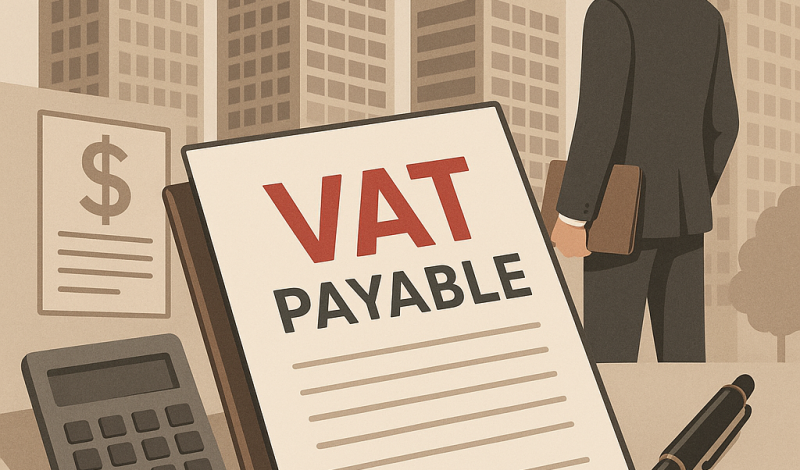In a defining judgment for Kenya’s tax and property law sectors, the Court of Appeal in Kenya Revenue Authority v. David Mwangi Ndegwa [2025] KECA 510 (KLR) has clarified that Value Added Tax (VAT) is payable on the sale of commercial premises. This decision settles a long-standing debate on the interpretation of paragraph 8 of Part II of the First Schedule to the Value Added Tax Act, 2013, particularly on whether buildings erected on land, including commercial ones, are exempt from VAT. The appellate court’s ruling will significantly shape tax compliance and transactional structuring in commercial real estate going forward.
Background Facts
In December 2013, the respondent, David Mwangi Ndegwa, purchased a commercial property—Kiambu Town Block 11/74—from Standard Chartered Bank Kenya Ltd. for Kshs. 70,000,050. Following the sale, the Kenya Revenue Authority (KRA) demanded Kshs. 11,200,080 as VAT, which the respondent paid under protest. He then instituted proceedings at the High Court seeking a declaration that VAT was not chargeable on land regardless of whether the structures thereon were residential or commercial, and further sought a refund of the VAT paid.
The High Court’s Determination
The High Court (Kasango, J.) found in favour of the respondent. Relying on Article 260 of the Constitution, which defines “land” to include the surface of the earth and the airspace above it, the court reasoned that any buildings standing on land must logically form part of the land itself. It held that paragraph 8 of the First Schedule to the VAT Act was ambiguous and should therefore be interpreted strictly in favour of the taxpayer. The court concluded that VAT was not chargeable on the transaction and ordered KRA to refund the VAT paid. Each party was directed to bear its own costs.
KRA’s appeal before the Court of Appeal
KRA appealed the High Court’s decision, raising three key issues being: whether buildings were part of “land” as per the constitutional definition; whether paragraph 8 of the First Schedule to the VAT Act was ambiguous; and whether a refund of VAT was payable.
The Court of Appeal rejected the High Court’s interpretation of “land” as espoused under Article 260 of the Constitution. It emphasized that the constitutional definition of “land” is context-dependent, and that the VAT Act, being a tax statute, has a distinct legislative context. The Court clarified that Article 260 of the Constitution begins with the words “unless the context requires otherwise,” which allows legislation to define or treat “land” differently depending on the subject matter. In this case, the VAT Act distinctly mentions both “land” and “residential premises,” and deliberately omits commercial premises, indicating a clear legislative intent to exclude commercial buildings from the scope of VAT exemption.
The Court further held that contrary to the position by the trial court, there was no ambiguity in paragraph 8 of the VAT Act. The provision clearly exempts the supply of “land or residential premises” and defines “residential premises” as land or a building used for residence. The deliberate exclusion of commercial premises from this list was interpreted as intentional. The Court held that the express mention of residential premises implied the exclusion of all other types of premises, including commercial ones.
Since the transaction involved a commercial building and was therefore not VAT-exempt, the Court concluded that the VAT was lawfully levied. The order of refund issued by the High Court was therefore set aside.
Implication of the decision
The Court of Appeal’s decision marks a significant turning point in the interpretation of VAT obligations in commercial property transactions. It affirms that the term “land” under the Constitution does not automatically extend to cover buildings in every context and that where Parliament has clearly distinguished between different types of premises—residential and commercial—in tax legislation, such distinctions must be respected. This decision reiterates the position that interpretation of tax law provisions calls for a careful balancing of competing principles including legislative intent, taxpayer protection and commercial realities.
Going forward, tax practitioners, property developers, and conveyancing lawyers must take note that commercial property transactions—unless expressly exempted—attract VAT, and this tax must be factored into transaction planning, pricing, and compliance.

Samwel Chumba
Legal Intern
19th April 2025

Michael Okumu
Senior Partner
19th April 2025







